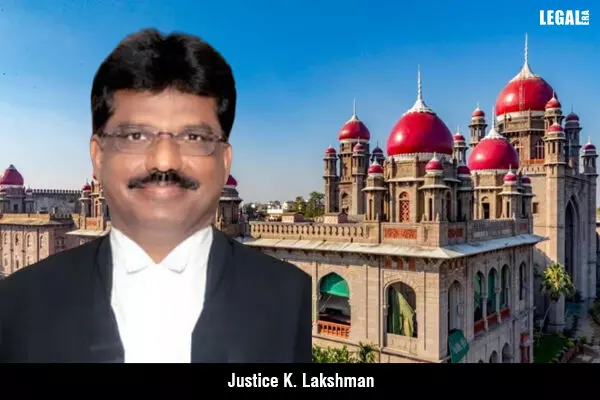- Home
- News
- Articles+
- Aerospace
- AI
- Agriculture
- Alternate Dispute Resolution
- Arbitration & Mediation
- Banking and Finance
- Bankruptcy
- Book Review
- Bribery & Corruption
- Commercial Litigation
- Competition Law
- Conference Reports
- Consumer Products
- Contract
- Corporate Governance
- Corporate Law
- Covid-19
- Cryptocurrency
- Cybersecurity
- Data Protection
- Defence
- Digital Economy
- E-commerce
- Employment Law
- Energy and Natural Resources
- Entertainment and Sports Law
- Environmental Law
- ESG
- FDI
- Food and Beverage
- Gaming
- Health Care
- IBC Diaries
- In Focus
- Inclusion & Diversity
- Insurance Law
- Intellectual Property
- International Law
- IP & Tech Era
- Know the Law
- Labour Laws
- Law & Policy and Regulation
- Litigation
- Litigation Funding
- Manufacturing
- Mergers & Acquisitions
- NFTs
- Privacy
- Private Equity
- Project Finance
- Real Estate
- Risk and Compliance
- Student Corner
- Take On Board
- Tax
- Technology Media and Telecom
- Tributes
- Viewpoint
- Zoom In
- Law Firms
- In-House
- Rankings
- E-Magazine
- Legal Era TV
- Events
- News
- Articles
- Aerospace
- AI
- Agriculture
- Alternate Dispute Resolution
- Arbitration & Mediation
- Banking and Finance
- Bankruptcy
- Book Review
- Bribery & Corruption
- Commercial Litigation
- Competition Law
- Conference Reports
- Consumer Products
- Contract
- Corporate Governance
- Corporate Law
- Covid-19
- Cryptocurrency
- Cybersecurity
- Data Protection
- Defence
- Digital Economy
- E-commerce
- Employment Law
- Energy and Natural Resources
- Entertainment and Sports Law
- Environmental Law
- ESG
- FDI
- Food and Beverage
- Gaming
- Health Care
- IBC Diaries
- In Focus
- Inclusion & Diversity
- Insurance Law
- Intellectual Property
- International Law
- IP & Tech Era
- Know the Law
- Labour Laws
- Law & Policy and Regulation
- Litigation
- Litigation Funding
- Manufacturing
- Mergers & Acquisitions
- NFTs
- Privacy
- Private Equity
- Project Finance
- Real Estate
- Risk and Compliance
- Student Corner
- Take On Board
- Tax
- Technology Media and Telecom
- Tributes
- Viewpoint
- Zoom In
- Law Firms
- In-House
- Rankings
- E-Magazine
- Legal Era TV
- Events
Telangana High Court: Power Under Section 11 A&C Act Is Limited, Cannot Address Disputed Facts

Telangana High Court: Power Under Section 11 A&C Act Is Limited, Cannot Address Disputed Facts
Telangana High Court Justice K. Lakshman has ruled that the High Court's authority under Section 11 of the Arbitration and Conciliation Act, 1996, is highly restricted. The court emphasised that it cannot delve into disputed factual matters, as these are within the arbitrator's jurisdiction to resolve.
Section 11 of the Arbitration and Conciliation Act, 1996, pertains to the court's role in appointing arbitrators. It outlines the procedure for the appointment when parties are unable to agree or when specific situations necessitate court involvement.
Syeda Sana Sumera (the applicant) petitioned the High Court under Sections 11(5) and (6) of the Arbitration and Conciliation Act, 1996, seeking the appointment of a sole arbitrator to resolve disputes. The applicant asserted that under a registered agreement of sale-cum-irrevocable general power of attorney, Kamran Mirza and three other respondents had agreed to transfer 7935 square yards of land, part of a larger plot that was yet to be fully developed. The applicant claimed that the respondents had breached their obligations under this agreement by issuing false notices and complicating the matter. Consequently, invoking Clause 8 of the agreement, the applicant initiated arbitration proceedings and notified the respondents, who failed to appoint an arbitrator within the stipulated timeframe despite receiving due notice.
In defence, Respondent No. 1 argued that the agreement lacked legal validity due to alleged breaches by the applicant, such as defaulted post-dated checks. They highlighted ongoing civil suits seeking cancellation of the agreement and third-party claims over the property. Respondent No. 1, while acknowledging the arbitration clause, contended that the applicant’s failure to fulfil consideration obligations rendered the agreement void. Respondent No. 2 echoed these arguments, citing the agreement's alleged nullity due to non-payment issues and third-party claims.
The High Court underscored the limited scope of its powers under Section 11 of the Arbitration and Conciliation Act, emphasising that its primary role is to determine the existence of a prima facie arbitration agreement. The court reiterated that its function in appointing an arbitrator is not to engage in disputed factual matters but to ascertain the presence of an arbitration agreement. This approach aligns with the legislative intent to minimise judicial intervention at the initial stage.
Referring to Clause 8 of the agreement between the parties, which provided for arbitration as the dispute resolution mechanism, the High Court noted that there was no contention regarding the validity of the arbitration clause itself. Consequently, the court found no barrier to referring the ongoing disputes between the applicant and the respondents to arbitration.
The High Court appointed Justice A. Rajashekher Reddy, a former judge of the High Court, as the sole arbitrator.


